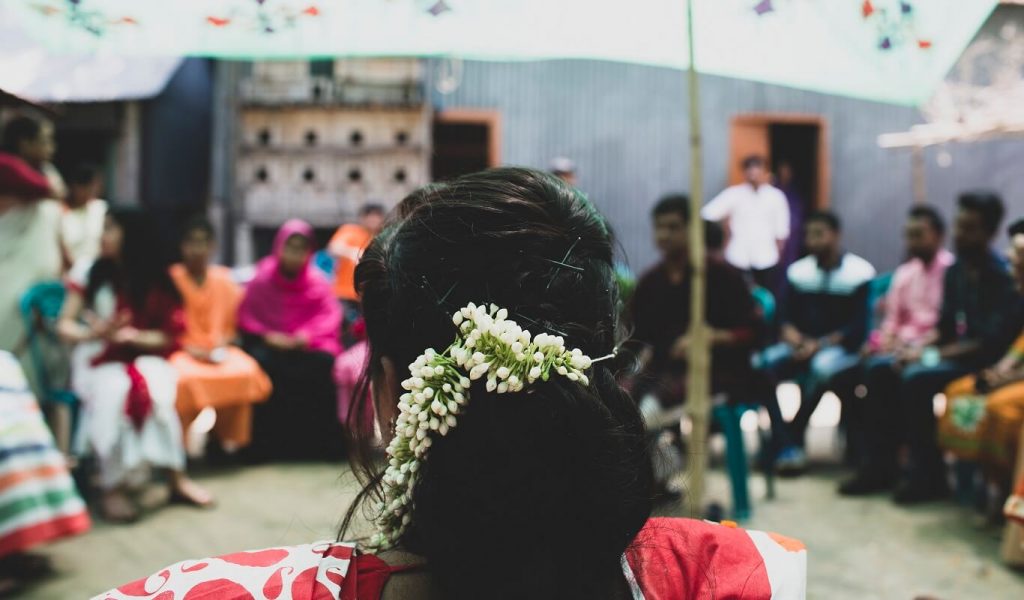Six Women Creating Spaces for Gender Justice in Asia
From a young student becoming a national advocate against child marriage to a quiet homemaker elected as a local government official, we feature six women and girls advancing women's rights by defying gender inequality, patriarchal gender norms, and social stigma in challenging contexts across South and East Asia.
Through the Creating Spaces project, these women champion female leadership in local governance, mobilize to challenge gender discriminatory social norms, and fiercely advocate for laws to end violence against women (VAWG) and child, early and forced marriage (CEFM).
Working with 25 local partner organizations across Bangladesh, India, Indonesia, Nepal, Pakistan, and the Philippines, Creating Spaces engages with communities, promotes positive gender norms through role modelling and women's leadership, and supports women and girls who have experienced different forms of violence.
Meet the Women on the Frontlines Advancing Gender Justice
Bangladesh
Alta Banu lives in the village of Ratanpur in western Bangladesh. She expanded her knowledge of women's empowerment and gender justice by participating in Creating Spaces activities. Inspired by what she learned, she successfully ran for the local government council. Seeing the hardships faced by her community during the COVID-19 pandemic lockdown, Alta took action.
With the backing of other community members, she started a charitable fund to support the most vulnerable in her community and helped several people to enroll in the government emergency relief program. She also launched a local health and safety awareness campaign where she and her team went door to door sharing information on COVID-19 prevention and protection measures and offering healthcare referrals to women and girls. Alta is a role model for many women and girls in Ratanpur, who, inspired by her restless activism, have joined her team to keep working on initiatives that bring positive change and spark action.
India
Sahida Khatoon lives in the state of Bihar in eastern India, bordering Nepal. Like many women in her community, Sahida believed violence against women was inherent in the social system. Participating in Creating Spaces' training and village meetings made her realize that what she thought was normal was actually unjust. She learned that violence against women is used to perpetuate gender discrimination. Motivated by her new knowledge, she became the leader of a local women's group supported by Creating Spaces. She taught others that social norms that limit women's potential, perpetuate violence.
In 2016, Sahida was the only woman elected to the local government. However, her male peers refused to recognize her in her capacity as a government official. Encouraged by her experiences with Creating Spaces, Sahida didn't give up. Instead, she carved her own space in local politics until her male peers finally recognized and accepted her.
"I will run for the next election," she says, "and will encourage other women to run as well."
Indonesia
Haerani Dg Kebo is a homemaker and the head of her local neighbourhood group in Gowa, located in southern Indonesia. When Creating Spaces arrived in her village, she quietly attended social activities and discussion groups. She saw VAWG and CEFM as usual occurrences and didn't interfere in her family's domestic violence incidents. But the more she learned, the more she realized many social norms around violence and marriage in her community are harmful. She began speaking up and fighting against them.
Today, Haerani is known in her community for her active role in resolving cases of violence against women. She works in coordination with LBH APIK Makassar, a Creating Spaces local partner that works with regional authorities on these issues. Since her Creating Spaces training, Haerani has successfully brought to justice over 30 cases of VAWG and CEFM in her community and in nearby mountainous areas with high child marriage rates. Her tenacity has earned her official recognition and a three-year appointment as a complaints and outreach officer in her neighbourhood.

A Creating Spaces participant listens to her peers during a women's leadership workshop in Tangail, Bangladesh.
Photo: Caroline Leal/Oxfam
Nepal
Tulsi Nath was 20 when she moved to a village in the Baitadi district in western Nepal. In this region, chhaupadhi prevails: the practice of exiling women from their homes to mud huts or sheds during menstruation because they are believed to be "unclean" and might bring their families bad luck or illness. During this confinement, girls and women lack ventilation, hygiene, and comfort. This practice often puts them at risk of disease or even death.
Tulsi began working as a community health volunteer, discussing superstitions, traditional stereotypes and hygiene. She also raised awareness among pregnant women about prenatal care. Her work infuriated many in the village, who saw her as a bad influence on local women.
With the support of Creating Spaces, Tulsi worked hard to set up a Community Discussion Centre (CDC), a safe space for learning and discussion. She persuaded 25 local women to participate in the initiative. At first, some women reluctantly participated in training sessions and conversations about empowerment and women's rights. As time passed, attitudes changed, and the group grew. Today, the women candidly express their concerns and feelings about child marriage, domestic violence and chhaupadhi.
"I used to be the only one who talked about women's rights," says Tulsi. "Now, there are almost fifty sisters who are able to speak like me."
Pakistan
Shazia Nayyar, from the city of Jhelum in northeastern Pakistan, is a lawyer on a mission to prevent child marriage. Her involvement with Creating Spaces made her realize that the law is a powerful tool to protect women and girls.
Shazia has used her expertise to prevent three child marriages with the support of local authorities. Her work has also resulted in the cancellation of a local marriage registrar's license after their involvement in a child marriage case. She believes Creating Spaces strengthened her voice, spirit, and conviction to fight violence against women and girls.
"The law is where our power lies," she says. "Once you realize where the power lies, the way forward is not as difficult as you think."
Philippines
Norhafisa Hadji Yusoph Pangocoga, 16, almost dropped out of school after her hometown, Marawi, on the southern Philippines' island of Mindanao, lived through five months of armed conflict that displaced thousands in 2017. After the violence, she moved to a nearby town with her mother, where she continued her studies, and became an outstanding student.
She began participating in local activities to engage with her community, leading her to Creating Spaces. Driven by her passion for helping people, Norhafisa became deeply involved with the project because it ran community sessions and leadership camps focused on youth's role in ending child marriage and violence against women and girls. She's interested in these issues as her mother married as a child.
The knowledge she gained from Creating Spaces and her family experiences have given Norhafisa the understanding to speak on the connections between CEFM, violence and gender discrimination, and how advancing gender rights protects women and girls. She has become a remarkable young leader. In 2019, she advocated for ending CEFM addressing the country's National Congress as a youth representative.
READ MORE: Creating Spaces – Uprooting our Beliefs
Asma Siyala and Farwah Qasim work on violence against women and girls (VAWG) and child, early and forced marriage (CEFM) issues in the gender-based violence unit of Oxfam Canada's international programs department.
Thanks to Our Supporters!
This project is undertaken with the financial support of the Government of Canada, provided through Global Affairs Canada, and the generous Canadian public.


